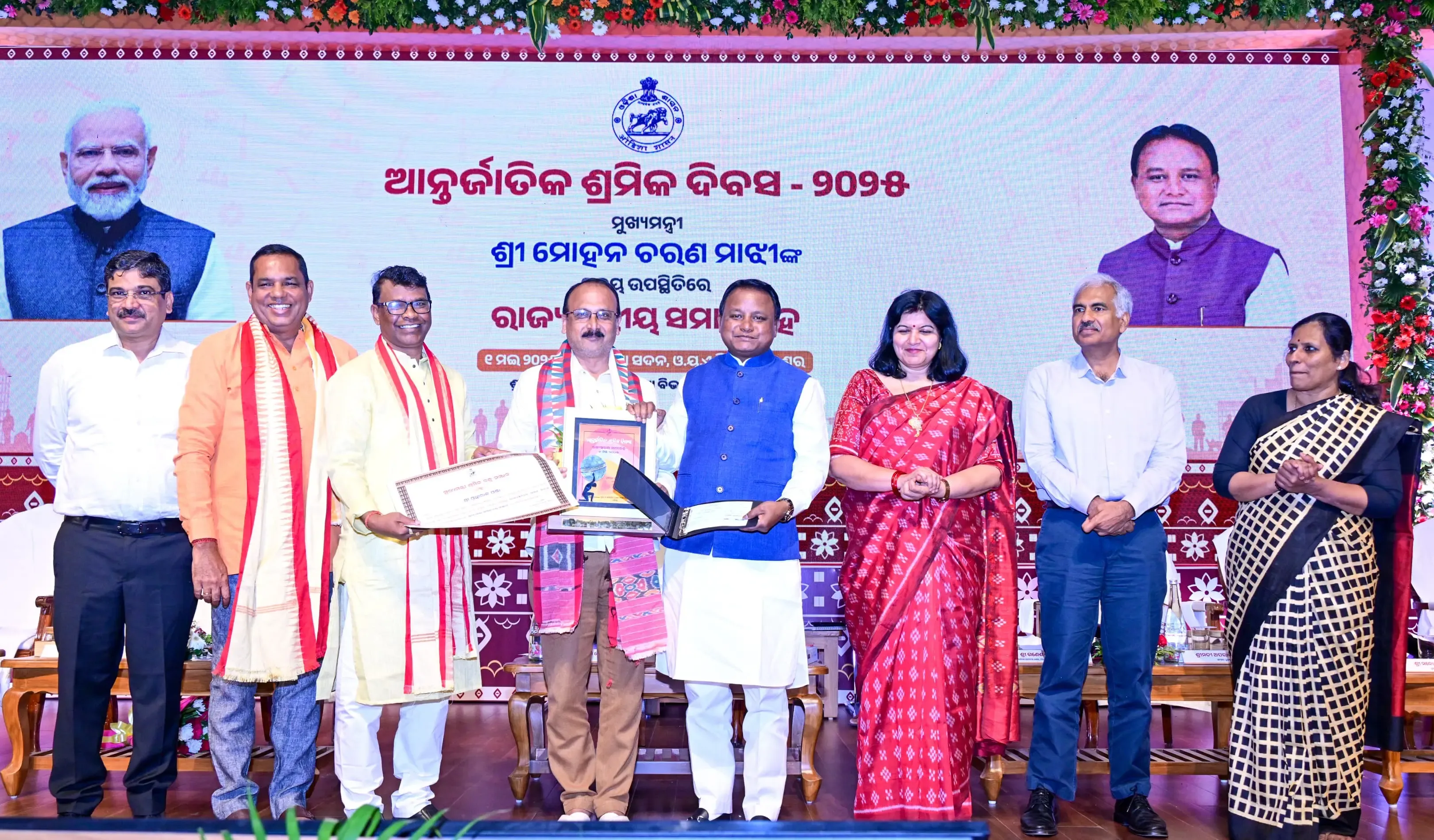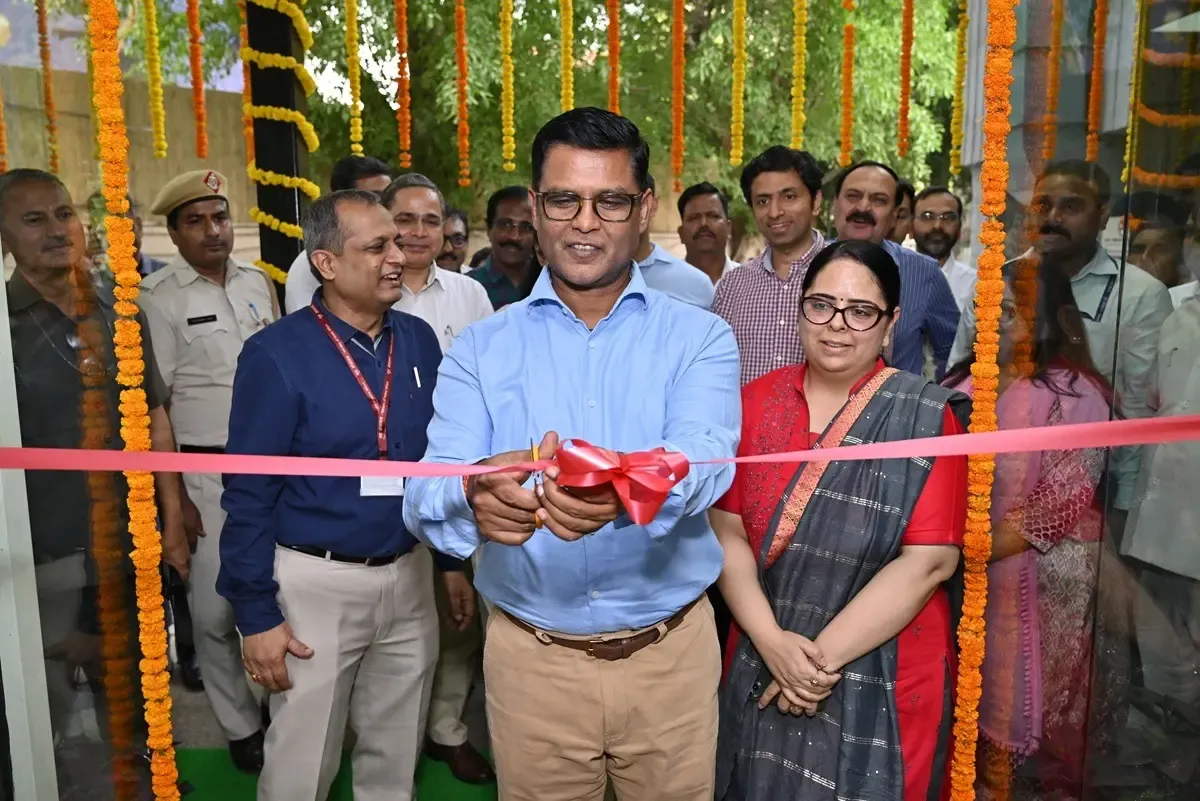Is Nationalism Our Religion? V-P Dhankhar on Pahalgam Attack

Synopsis
Vice President Jagdeep Dhankhar emphasizes the importance of nationalism while addressing the Pahalgam attack challenge. He calls for unity and a strong response from the nation, reinforcing the idea that national interest is paramount. His remarks at a book launch highlight the significance of constitutional respect and progress in India under PM Modi.
Key Takeaways
- Nationalism is central to India's identity.
- Unity is essential in addressing challenges.
- Respect for constitutional roles is paramount.
- India has made significant developmental strides.
- Historical lessons inform current governance.
Lucknow, May 1 (NationPress) Vice President Jagdeep Dhankhar stated that the Pahalgam attack represents a significant challenge for the nation, asserting that ‘nationalism is our religion’. On Thursday, he expressed hope that the country would respond ‘unitedly’ under the guidance of Prime Minister Narendra Modi.
He emphasized his commitment to speak strongly regarding comments made about constitutional roles, indirectly referring to his concerns about recent judicial overreach regarding the President's functions.
During a book launch event, Dhankhar remarked, “Cowardice is fleeing from a challenge”, urging the nation to unite as “one person” in light of the Pahalgam terror attack that claimed 26 lives in J&K on April 22.
“We must resolve that national interest is non-negotiable. The principle of nation-first should guide us,” he stated, reiterating that “nationalism is our religion”.
At the launch of the book ‘Chunautiyan Mujhe Pasand Hai’, authored by Uttar Pradesh Governor Anandiben Patel, Dhankhar provided examples of advancements under PM Modi, including the increase in power connections and sanitation facilities in homes. He noted, “Today, the world looks towards India. The Prime Minister has transformed significant challenges into opportunities.”
He highlighted improvements in Internet access, water supply, and healthcare as indicators of progress under PM Modi’s administration. “This is why PM Modi renamed ‘Rajpath’ to ‘Kartavyapath’,” he added.
“Challenges will persist, with the gravest ones arising from our own people. Such baseless challenges detract from national development and are reminiscent of the ‘Raj days’,” he asserted.
Identifying himself as a victim of colonial mentality challenges, he stated, “Our strength lies in our civilizational depth. The Veda, Gita, Ramayana, and Mahabharata guide us in times of challenge.”
He stressed that ignoring challenges is not a viable solution, and the path of duty is uncompromising.
In a veiled reference to perceived judicial overreach stemming from a Supreme Court ruling that imposed a time limit on the President's assent to bills, he expressed concern over comments directed at constitutional positions.
Making an indirect reference to the disqualification of former Prime Minister Indira Gandhi's election by the Allahabad High Court nearly 60 years ago, Dhankhar stated, “It is our duty to ensure constitutional institutions are respected.”
He emphasized that respect arises when institutions adhere to their respective domains and honor one another.
“Our Constitution recognizes two supreme positions: the President of India and the Governor. Their oaths emphasize protecting, preserving, and defending the Constitution,” he elaborated. “Comments on such esteemed constitutional roles warrant serious reflection,” he said, underscoring the President's supremacy in the constitutional framework.
“The Constitution doesn't envision conflicts among institutions but encourages coordination, collaboration, discussion, deliberation, dialogue, and debate,” he stated.
Referring to Uttar Pradesh as “Uttam (best) Pradesh,” he praised the state's remarkable development under Chief Minister Yogi Adityanath, highlighting the introduction of the first waterway and the country's inaugural rapid rail transport system.
“India is filled with hope and potential. The ascent of Bharat is extraordinary. Challenges will arise, and we cannot shy away from confronting them,”
he added, discussing future challenges.
He noted a faction that operates under the assumption that public memory is fleeting.
“They believe people will forget issues with time, but that is not the case,” he remarked, recalling the Emergency as the darkest chapter in democratic history when countless individuals were imprisoned.
“Judicial access was obstructed, and fundamental rights were disregarded. We haven’t forgotten. While we must uphold the principle of innocence, any crime affecting public sentiment cannot be overlooked,” he stated, subtly referencing the ‘cash at judge’s home’ incident involving a Delhi High Court judge.









